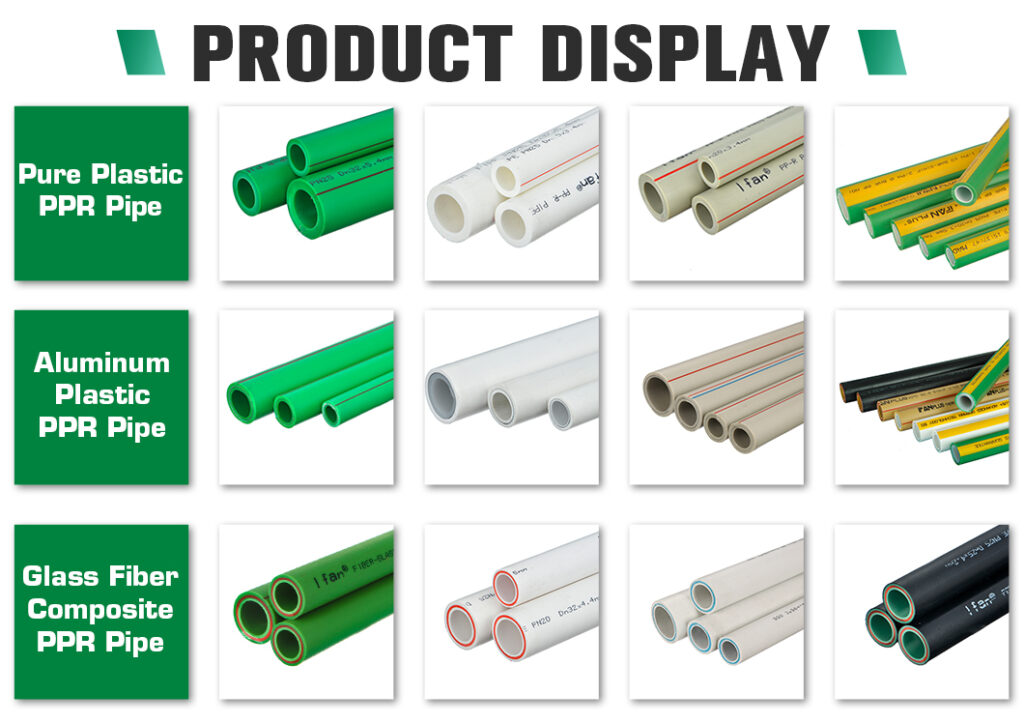PPR Plumbing Systems: The Sustainable Solution for Modern Construction
The construction industry is witnessing a shift towards sustainable and environmentally friendly building practices. Within this context, Polypropylene Random Copolymer (PPR) plumbing systems have gained prominence as a sustainable solution that aligns with modern construction trends. In this article, we will explore the sustainable aspects of PPR plumbing systems and their role in contemporary construction.IFAN factory 30+ years manufacture experience support color/size customization support free sample.Welcome to consult for catalog and free samples.This is our FacebookWebsite: www.facebook.com.
Eco-Friendly Material
One of the standout features of PPR plumbing systems is their eco-friendly composition. PPR pipes and fittings are made from recyclable materials. This not only reduces the environmental impact of the construction industry but also supports the circular economy by promoting the reuse of materials.
Energy Efficiency
PPR plumbing systems excel in energy efficiency. They have low heat conductivity, which means they require less energy to maintain the temperature of the water being transported. This energy-saving aspect contributes to reduced greenhouse gas emissions and lowers the overall carbon footprint of a building.
Longevity
Sustainability also involves durability. PPR plumbing systems are renowned for their long service life. Their resistance to corrosion and chemical degradation ensures that they remain functional for decades. This longevity reduces the need for frequent replacements and, in turn, minimizes waste and resource consumption.

Reduced Water Wastage
Water conservation is a critical aspect of sustainability. PPR plumbing systems offer an advantage in this regard. They are equipped with leak-resistant joints and connections, ensuring minimal water wastage. Additionally, PPR’s smooth inner surface prevents the build-up of sediments, which can impair water flow and efficiency. This results in reduced water consumption, making it an environmentally responsible choice.
Recyclability
PPR plumbing systems can be recycled at the end of their service life. This recyclability reduces the burden on landfills and conserves raw materials. The ability to recycle PPR pipes and fittings encourages responsible disposal practices, contributing to sustainable construction.
Resistant to Chemicals
The chemical resistance of PPR plumbing systems makes them ideal for use in a variety of settings, including industries that handle corrosive substances. This versatility and adaptability extend the service life of the plumbing system, which is a core principle of sustainability—making the most of available resources.
Conclusion
Incorporating PPR plumbing systems into modern construction projects aligns with the industry’s shift towards sustainability. Their eco-friendly materials, energy efficiency, durability, water-saving features, recyclability, and resistance to chemicals make them a choice that not only meets the demands of contemporary construction but also supports responsible environmental practices. By using PPR plumbing systems, construction professionals contribute to a greener and more sustainable future for the built environment.

